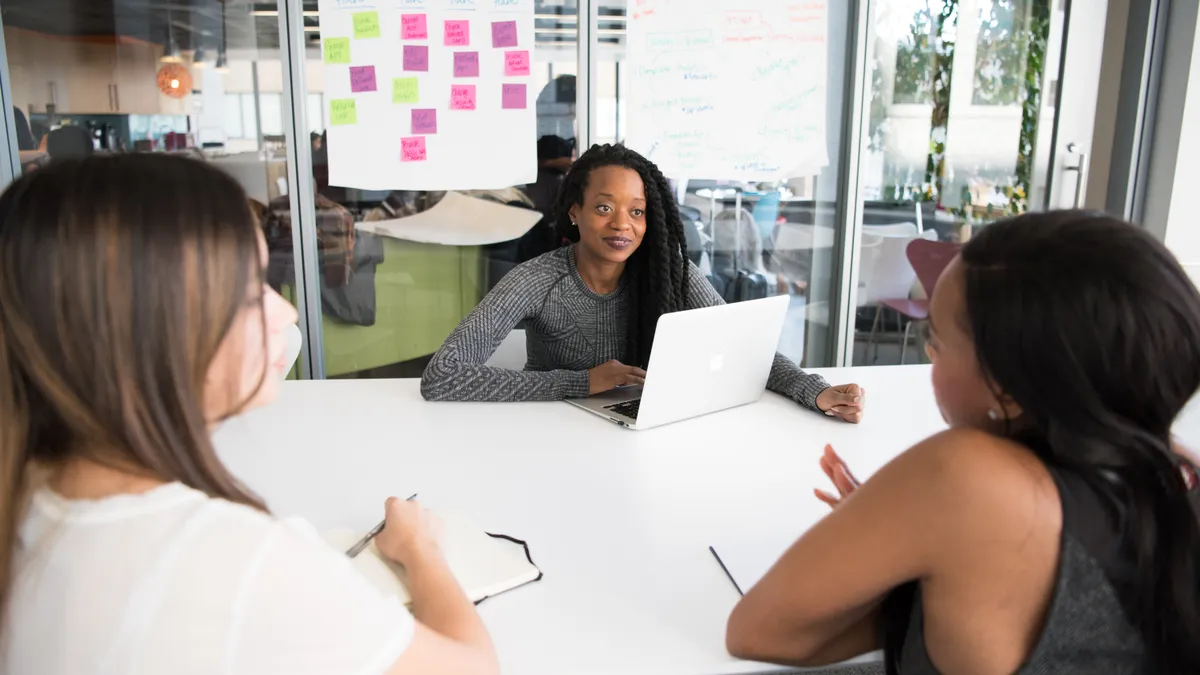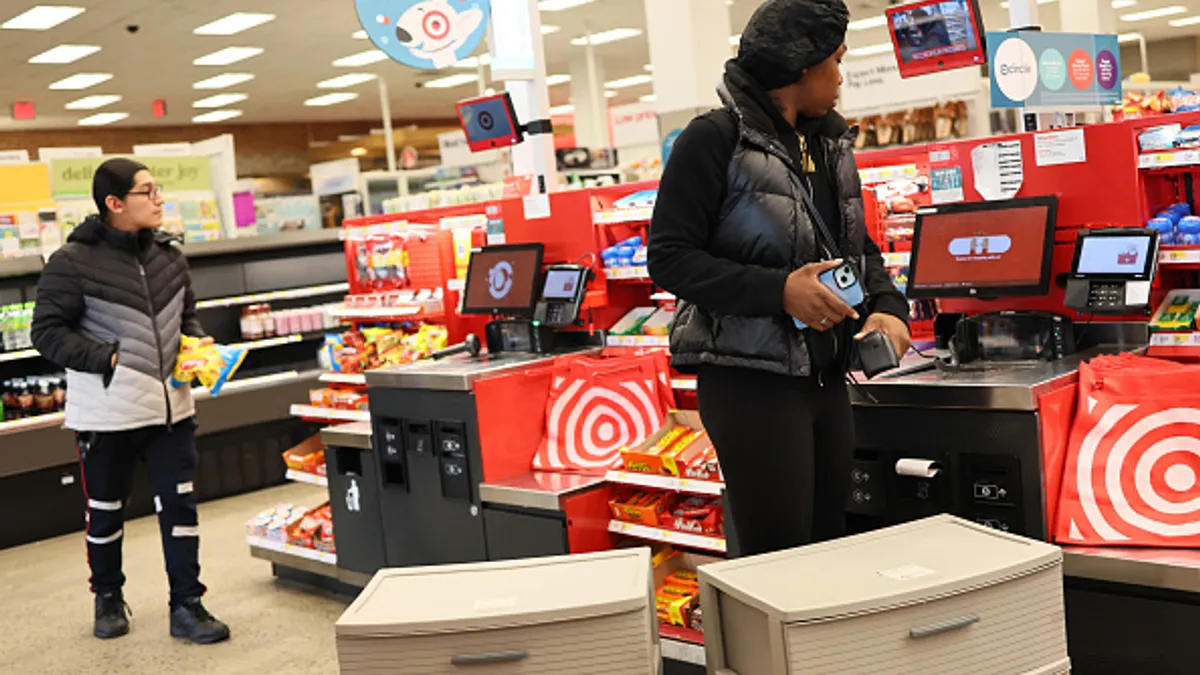As some employers work to address systemic racism prompted by the calls for racial justice in 2020, there's been a spike in investment in training for diversity, equity and inclusion, according to data of industry experts.
But for 2021, recruiting and hiring is the top concern for HR professionals. A refresh may be required going forward to make a real difference in an organization when it comes to DEI, according to professionals from DoorDash, BambooHR, Checkr, Criteria Corp and Greenhouse Software who participated in a recent Criteria webinar. Employers are ditching antiquated ways to source talent, exploring fair chance hiring and preparing for a future in which DEI embraces social justice and democratizes access to good jobs that will benefit both employees and their communities, panelists said.
Breaking the cycle of exclusivity in recruiting
A challenge working in talent acquisition as a recruiter or as a hiring manager is consistently trying to navigate the trade off between efficiency and effectiveness, Gary Davis, diversity, equity and inclusion advisory director at Greenhouse Software, said.
Unconscious bias is very real, Davis said; but HR professionals have to be cognizant of the more blatant biases that may exist. For example, only wanting to source candidates directly from colleges, he said.
"I think as recruiters and as HR folks, we have to be more aware of the biases that we put into our own assessment measures," Davis said. "And frankly, let's stress-test [them]."
Sometimes an MBA is preferred for a role, he said. "But do you actually have any evidence that MBA will be required?" Davis said. "Are these nice to haves? Are they absolutely required?" Oftentimes in hiring, companies use such standards to create a profile of a qualified applicant, he said.
"I think the challenge is that identity or that archetype does not fully represent our workforce today," Davis said. It is essential to build teams that reflect the demographics of society, as they will be in the position to develop resources, products and services that "appeal to a more pluralistic environment across lines of age, gender, race, sexual orientation and ability level," he said.
"I think for more personal reasons, as someone that sits at the intersections of being a Black male, gay, and a first-generation college graduate, it's really important to be in an environment where all those identities can be recognized and affirmed, and also to encourage a space where others can also continue to be their authentic selves, too," Davis said.
In focusing on democratizing access, and creating more opportunities, HR leaders have a responsibility to build a more structured hiring process, he said.
"I cannot emphasize how important structured hiring is," Courtney Renick-Mayer, senior manager of diversity and inclusion at DoorDash, said. "This includes actually helping hiring managers build out core competencies for all of the roles, and really holding people accountable to evaluating against those core competencies." Interview training, including interview kickoff and then debrief sessions is vital for hiring managers, Renick-Mayer said. Without these types of steps, and a process that limits bias, employers may not see the progress that they'd like, she added.
Clear and concise methods to collect candidate data can help organizations understand, if "candidates of color coming into your pipeline are moving through your pipeline," or if the company is losing them at higher rates at certain points during the hiring process, Renick-Mayer said. The data also helps to determine if the recruiting process is equitable and fair. "Are we really prioritizing top-of-the-funnel sourcing, but by the time we get to the third round, we're significantly losing candidates of color?" Renick-Mayer said.
Training recruiters and hiring managers to have a shared and common language when defining diversity and inclusion practices at the company is also crucial. For example, if a candidate asks what it is like to be a Black employee at DoorDash, and the recruiter can't answer that type of question or offer resources, "you lose trust and credibility very, very quickly," she said.
Looking toward the future, "HR and the recruiting process, just needs to fundamentally shift," Davis said. "I've been thinking a lot lately around how does HR, specifically the recruiting function, drive the economy in terms of identifying who gets access to opportunities, and how can we overall just improve the opportunity index."
Fair chance hiring programs in DEI recruiting
U.S. Equal Employment Opportunity Commission (EEOC) guidance states that in some instances, an employer's use of an individual's criminal history in making employment decisions may violate the prohibition against employment discrimination under Title VII of the Civil Rights Act of 1964. "National data supports a finding that criminal record exclusions have a disparate impact based on race and national origin," according to the EEOC.
Rehana Lerandeau, a former senior fair chance programs manager at Checkr, now a senior program associate at Human Impact Partners, created Checkr's first fair chance hiring program. About 5% of Checkr's full-time workforce have criminal records or have been previously incarcerated, Lerandeau said in the webinar; and about a third of the US workforce has a criminal record. Studies have shown that racial inequity exists within the criminal justice system, such as research by the Stanford Center on Poverty & Inequality.
Checkr focused on figuring out how to effectively screen without being exclusive and maintaining compliance, Lerandeau said. Screening tactics per EEOC guidance include looking at the nature and gravity of the offense, time that has passed since the offense or completion of the sentence and comparing that to the nature of the job sought, Lerandeau explained.
"If those three things aren't intrinsically linked, and create real risk, you're probably clear to hire that person," Lerandeau said.
Future trends in DEI
Renick-Mayer explained she wants to take action to challenge the systems and structures that continue to perpetuate racism. To that end, she has been pondering the question: "Is DEI in the corporate sector really social justice work?" she said; "Or is it just actually harm reduction?" Social justice work focuses on undoing systemic racism and sexism, Renick-Mayer said, "but in a lot of ways, corporate DEI is just trying to make our companies more tolerable and safer for people of color, and women of all backgrounds, but it's not getting to the root of the issue." Exploring possibilities of how the next version of DEI work can be accomplished through more of a social justice lens, rather than simple harm reduction, is on her agenda, Renick-Mayer said.
Diversity should be viewed through a wider lens, according to Lerandeau. "You might have a team that is very ethnically diverse and very gender diverse, but everyone has the same speech pattern," Lerandeau explained. "Everyone had the same four year degree. Everyone goes to the same gym. Is that really diversity?"
Looking toward the future, "I want to see people that are truly different from each other, that dress differently, talk differently, come from different socio-economic statuses — all having the same access to good quality jobs," Lerandeau said. "I think that's how we're going to start to close that gap between our folks who are in extreme wealth and luxury and extreme struggle and poverty."
"I would hope that employers will be able to continue putting their money where their mouths are as it relates to building out training programs," Davis said. Looking ahead at DEI, specific apprenticeship models that are targeted toward individuals that are underrepresented at the company will become essential, he said. "I don't fundamentally believe you can have a conversation about equity without having a conversation about history," in order to "understand the barriers that have essentially precluded the individuals or the communities that are underrepresented at the company," Davis said.





















